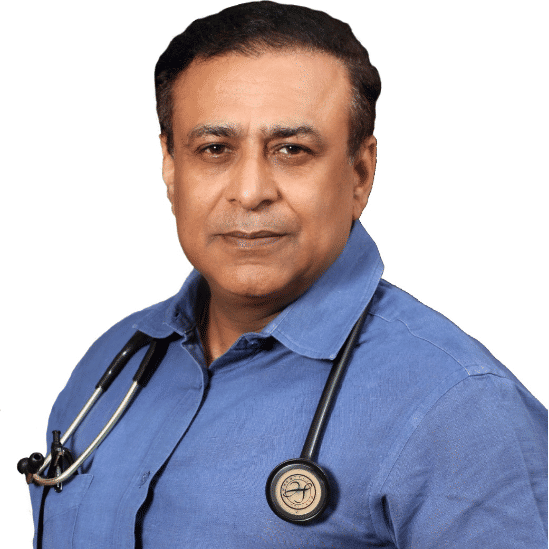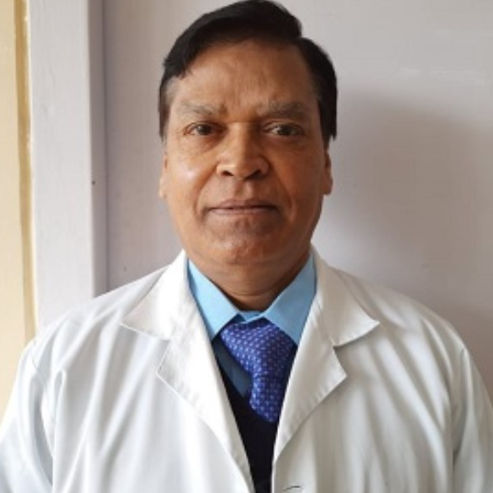Best Online Doctors for Nephrology (64 doctors)
Book appointment for a trusted Nephrologists in Secunderabad. Check doctor fees, available slots & locations. Apollo 24|7 features some of the top Nephrologists in Secunderabad who have experience in treating conditions such as Kidney Failure, Acute Renal Failure, Dialysis and more. You can book online consultations & physical doctor appointments via Apollo 24|7. Compare Nephrologists fees, experience and more, find a specialist doctor near you. Apollo hospitals has a renowned Nephrology department in Secunderabad.

Dr Vinod Kumar K
Nephrologist
11 Years • MBBS,MD,DNB,MRCP,FASN,FRCP
Bengaluru
Apollo Hospitals Bannerghatta Road, Bengaluru

Dr. Gokul Nath
Nephrologist
38 Years • MBBS, MD (Gen. Med.), DM, DNB (Nephro), FISN, FRCP
Bengaluru
Apollo Hospitals Bannerghatta Road, Bengaluru
300+ recommendations

Dr. Sanjiv Jasuja
Nephrologist
30 Years • MD (Med.), DNB (Nephro), MNAMS (Nephro),FIMSA
Delhi
Apollo Hospitals Indraprastha, Delhi
100+ recommendations

Dr. Bheema Bhatta
Kayachikitsa
40 Years • BAMS, MD (Kayachikitsa)
New Delhi
Apollo AyurVAID Hospitals, New Delhi
Nephrologists in nearby Cities
Related Treatments in Secunderabad
- •Treatment for Acute Kidney Disease Aki Treatment in Secunderabad
- •Treatment for Chronic Kidney Disease Ckd Treatment in Secunderabad
- •Treatment for Acute Renal Failure in Secunderabad
- •Treatment for Adult Nephrology in Secunderabad
- •Treatment for Alport Syndrome in Secunderabad
- •Treatment for Bartter Syndrome in Secunderabad
- •Treatment for Chronic Kidney Disease Ckd in Secunderabad
- •Treatment for Acute kidney failure in Secunderabad
- •Treatment for Ankle Pain in Secunderabad
- •Treatment for Bleeding During Pregnancy in Secunderabad
- •Treatment for Acute Diarrhea Treatment in Secunderabad
- •Treatment for Critical Care in Secunderabad
- •Treatment for Ambulatory Blood Pressure Monitoring in Secunderabad
- •Treatment for Arteriovenous Fistula in Secunderabad
- •Treatment for Autoimmune Kidney Diseases in Secunderabad
- •Treatment for Benign Prostatic Enlargement BPH in Secunderabad
- •Treatment for Blood Pressure Changes in Secunderabad
- •Treatment for Cardiorenal Syndrome in Secunderabad
- •Treatment for Cholangiocarcinoma in Secunderabad
- •Treatment for Congenital Nephrogenic Diabetes Insipidus in Secunderabad
FAQs
What does a nephrologist do?
A nephrologist specialises in diagnosing and treating kidney diseases, and managing conditions like chronic kidney disease, kidney stones, and high blood pressure. They also oversee treatments like dialysis and monitor kidney function through various tests.
What is the difference between a nephrologist and an urologist?
Nephrologists focus on medical management of kidney conditions, while urologists handle surgical treatments of the urinary tract, including the bladder and kidneys. Urologists also address conditions like kidney stones and prostate issues.
What organ is nephrology?
Nephrology is the medical specialty that focuses on the kidneys, which are responsible for filtering waste, balancing fluids, and regulating blood pressure. This field addresses kidney diseases and conditions that affect renal function.
Can a nephrologist do surgery?
Nephrologists do not perform surgery; they manage kidney-related diseases through medical treatments such as medications and dialysis. Surgical procedures are typically handled by urologists or other specialists.
When to worry about creatinine levels?
High creatinine levels indicate kidney dysfunction and should be addressed, especially if they are persistently elevated. A significant increase could suggest issues like chronic kidney disease, dehydration, or urinary tract obstruction, and require medical attention.
When should I see a nephrologist for kidney disease?
You should see a nephrologist if you have abnormal kidney function tests, such as elevated creatinine, or if you experience symptoms like swelling, high blood pressure, or changes in urination. Early referral can help manage and slow the progression of kidney disease.
Are nephrologists and neurologists the same?
No, nephrologists specialise in kidney diseases, while neurologists treat disorders of the nervous system, such as brain and spinal cord conditions. They focus on different organs and systems in the body.
What are the early signs of kidney disease?
Early signs of kidney disease include fatigue, swelling in the hands and feet, changes in urination, and high blood pressure. These symptoms may indicate impaired kidney function and require medical evaluation.
Can I live with one kidney?
Yes, people can live with one kidney, as the remaining kidney can compensate for the loss and continue to perform necessary functions. Maintaining a healthy lifestyle is important to protect kidney health.
How do I choose a nephrologist?
When choosing a nephrologist, consider their experience, reputation, and how well they communicate and address your concerns. Referrals from your primary care doctor or other patients can also help guide your decision.
What is the most common disease treated by a nephrologist?
Chronic kidney disease (CKD) is the most common condition treated by nephrologists, often caused by factors like diabetes and hypertension. Nephrologists also manage conditions like kidney stones and glomerulonephritis.
Can I live with one kidney?
Yes, people can live with one kidney, as the remaining kidney can compensate for the loss and continue to perform necessary functions. Maintaining a healthy lifestyle is important to protect kidney health.
How do I choose a nephrologist?
When choosing a nephrologist, consider their experience, reputation, and how well they communicate and address your concerns. Referrals from your primary care doctor or other patients can also help guide your decision.
What is the most common disease treated by a nephrologist?
Chronic kidney disease (CKD) is the most common condition treated by nephrologists, often caused by factors like diabetes and hypertension. Nephrologists also manage conditions like kidney stones and glomerulonephritis.